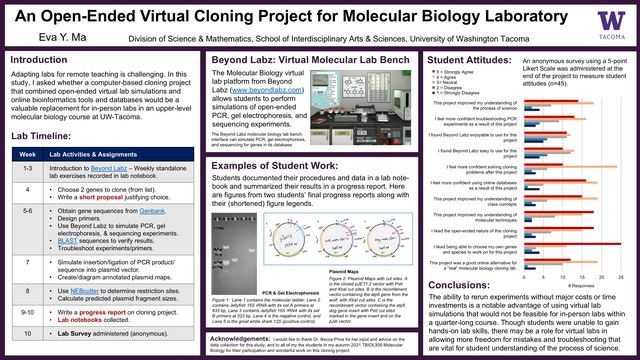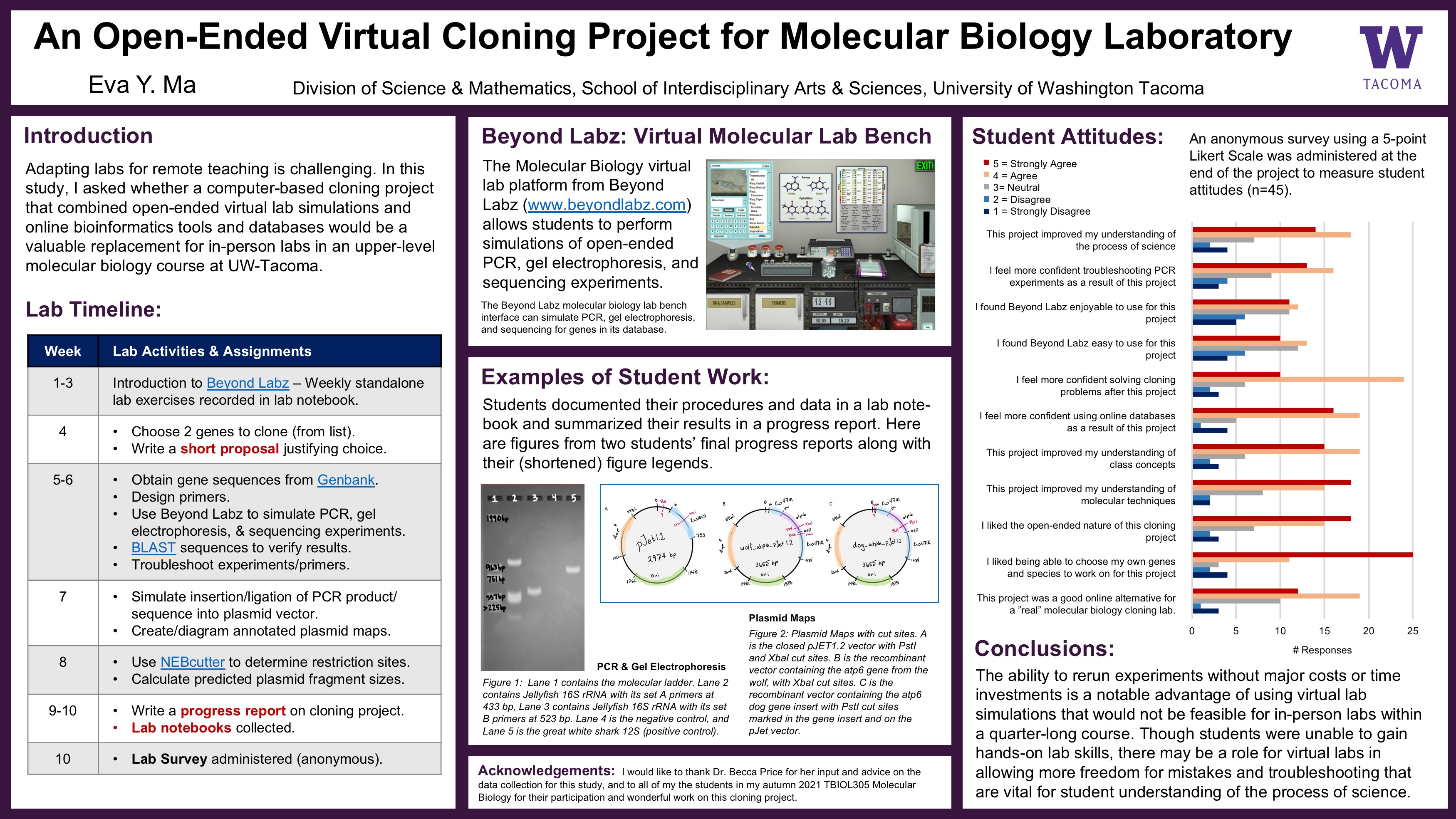An Open-Ended Virtual Cloning Project for Molecular Biology Laboratory

Full description
Video Presentation
Author:
Eva Ma, Division of Science & Mathematics, School of Interdisciplinary Arts & Sciences, UW Tacoma
Abstract:
Adapting labs for remote teaching is challenging. In this study, I asked whether a computer-based cloning project that combined open-ended virtual lab simulations by Beyond Labz and online bioinformatics tools and databases would be a valuable replacement for in-person labs in an upper-level molecular biology course at UW-Tacoma. Students began by writing a short proposal justifying their choice of two genes to clone. Over the next 3-4 weeks, students simulated cloning these genes, documenting their procedures and results in a lab notebook. They obtained sequences from Genbank and designed primers for PCR experiments that they ran and troubleshot in Beyond Labz. Students then sequenced their “samples” and used BLAST to compare their results with the original database entry. Finally, students simulated the insertion of their two genes into plasmid vectors to create maps of their final plasmids and determined restriction site locations using NEBcutter. At the end of the project, students wrote a progress report summarizing what they had done.
A survey was administered at the end of the project to measure student attitudes (n=45), while their writing assignments were assessed for student learning. Most students (69%) agreed that this project was a good alternative to a “real” cloning lab. Students liked choosing their own genes (80%) and reported more confidence in their understanding of molecular techniques (73%) and concepts (76%) as well as their ability to troubleshoot experiments (64%). The ability to rerun experiments without major costs or time investments is a notable advantage of using virtual lab simulations that would not be feasible for in-person labs within a quarter-long course. Though students were unable to gain hands-on lab skills, there may be a role for virtual labs in allowing more freedom for mistakes and troubleshooting that are vital for student understanding of the process of science.
View a PDF version of the poster in Google Drive to enlarge the image or download a copy.
Comments
The presenter for this poster will be available to respond to comments during Poster Session 2 on April 20, 3:45-4:30 p.m.Comments
to view and add comments.
Annotations
No one has annotated a text with this resource yet.
- typeImage
- created on
- file formatjpg
- file size2 MB
- publisherUniversity of Washington
- rights


